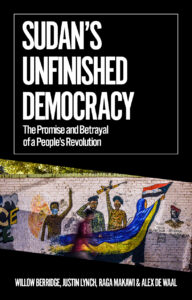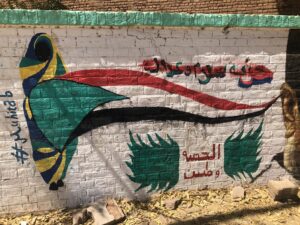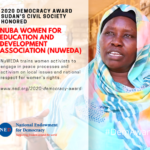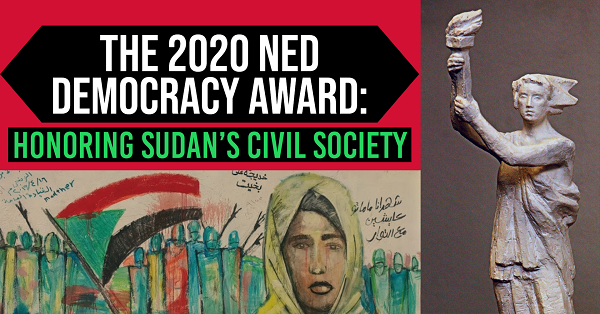Civil society activism in Africa can sometimes seem like an exercise in empty sloganeering: “mobilizing the grassroots”, “empowering the youth”, and so on, The Economist observes:
Not in Sudan, where in recent years thousands of neighborhood “resistance committees” have sprung up throughout the country. Forged in 2018 in the furnace of revolt, they began as autonomous networks of local protesters aimed at toppling Omar al-Bashir, an Islamist despot accused of genocide by the International Criminal Court, and at shepherding the country towards democracy.
 “The committees are transforming from being a mobilizing force into an overtly political organization,” notes analyst Kholood Khair.
“The committees are transforming from being a mobilizing force into an overtly political organization,” notes analyst Kholood Khair.
Major, major step forward?
“After almost 15 months after the coup of 25 October 2021, returning to the transition path would be a major, major step forward for all Sudanese whether they are civilians or in the military,” said Volker Perthes, the UN Special Representative for Sudan.
But the main pro-democracy coalition in Sudan declined an invitation to a meeting in Cairo, with other Sudanese stakeholders, aimed at negotiating the application of a preliminary agreement reached last month with the ruling generals, reports suggest. The influential Forces for Freedom and Change said Egypt’s proposed meeting had been overtaken by developments on the ground in Sudan.
A striking feature of many successful nonviolent action campaigns is the outsized presence of young people, especially on the front lines, USIP’s Matthew D. Cebul observes. Recent history is replete with examples — mass movements in Iran, Hong Kong, Sudan, Lebanon, Algeria and others have all drawn strength from major swells of determined youth mobilization.
 USIP research shows that young protesters are at a disproportionately high risk and receive few direct rewards, he writes. This cycle has played out in numerous cases, such as in Sudan, where youth risked their lives to oust Omar al-Bashir in 2019 but have been largely excluded from the transition process.
USIP research shows that young protesters are at a disproportionately high risk and receive few direct rewards, he writes. This cycle has played out in numerous cases, such as in Sudan, where youth risked their lives to oust Omar al-Bashir in 2019 but have been largely excluded from the transition process.
Representatives from civil society partners in Zimbabwe, the Democratic Republic of Congo (DRC) and Sudan recently came together in NED-funded event to address their respective advocacy efforts focused on the preservation of civic space, NDI reports. In Sudan, where the country’s increasingly repressive climate has presented a narrow space for CSO participation, Al-Khatim Adlan Center for Enlightenment (KACE – above) is the face of resistance and continuity.
 Yet some reckon that Sudan’s grassroots committees are a busted flush, The Economist adds:
Yet some reckon that Sudan’s grassroots committees are a busted flush, The Economist adds:
Street protests against the agreement reached in December were more muted than before. Internal fissures are widening. Some members argue that the deal should be given a chance. Several committees refused to sign a draft constitutional charter published in October, complaining that it had been drawn up without enough consultation…..Even so, the movement remains a force to be reckoned with, so long as Sudan’s democratic transition seems to be stalling.
Sudan’s leading civil society groups were recognized by the National Endowment for Democracy (NED) for their role in facilitating Sudan’s albeit fragile democratic transition.








